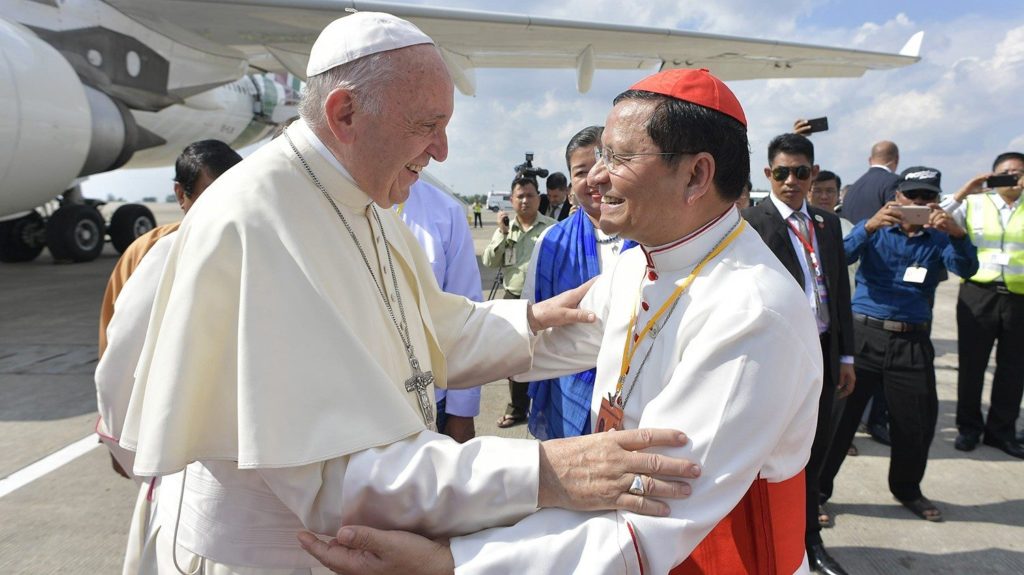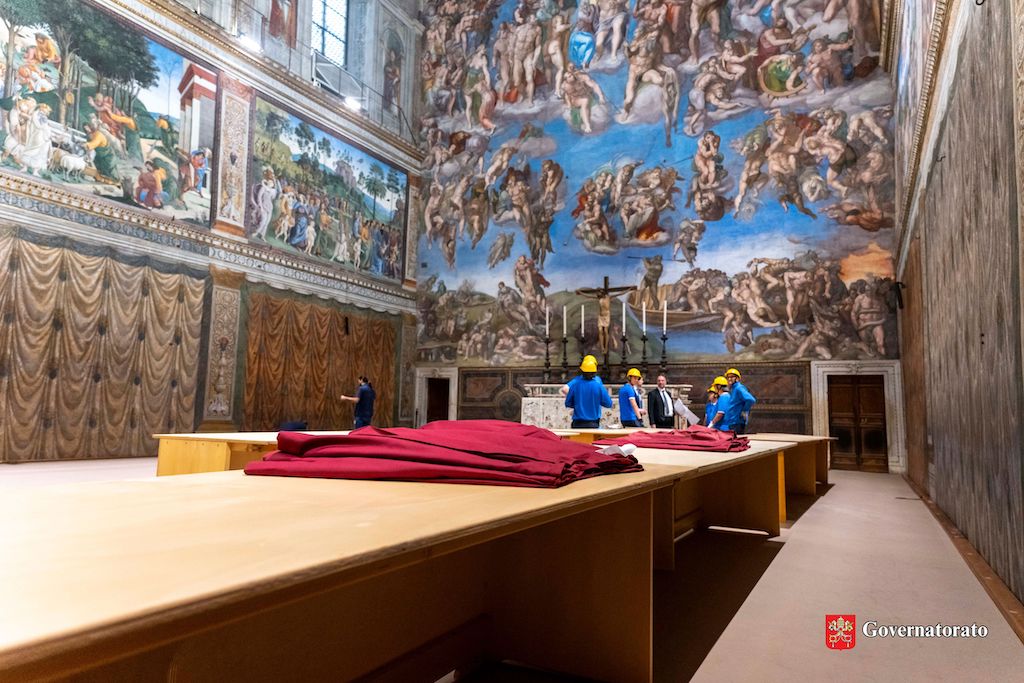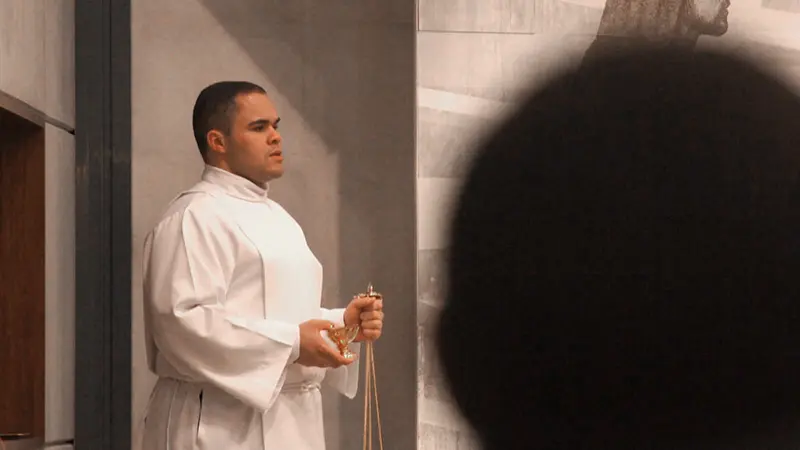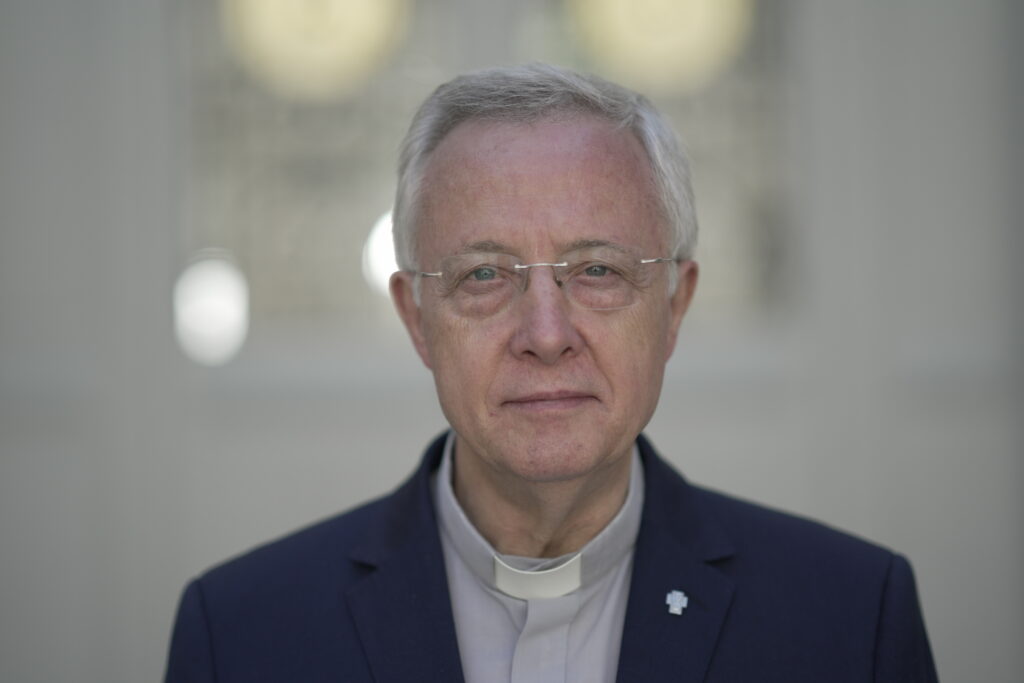EXCLUSIVE INTERVIEW: Cardinal Bo: The People of Myanmar Have Spoken Through Tears & Blood
Archbishop of Yangon and President of Asian Bishops Speaks

Forty days after the coup in Myanmar that sparked popular protests with dozens of dead and thousands of opponents arrested, the Archbishop of Yangon Cardinal Charles Maung Bo comments on the situation in his country in this exclusive interview with Exaudi.
“Confrontations and killings are abominable in this century,” he denounces. With regard to the role played by the Catholic Church, “We called for the release of all arrested people.” But “Myanmar’s curse,” he adds, “is its resources, coveted by superpowers who are more interested in looting them rather than affirming the rights of our people.” Finally, on the role played by China, “Sadly, its geostrategic interests, seemed to overwhelm all other voices.“
Here is Exaudi’s conversation with His Eminence:
***
EXAUDI: Your Eminence, news continues to arrive from Myanmar about protests against the military who took power last February 1, and about many casualties. How could you describe the situation?
CARDINAL CHARLES MAUNG BO: Nationwide the coup provoked huge anger and disappointment. Huge protests erupted, organized by the youth. A tech savvy young generation brought thousands to the streets. Life was brought to a standstill. After a month of huge crowds, the army attacked on 28th Feb and 3rd March. Around 54 people are so far killed. Many are very young and this is a great tragedy. A country where mothers bury their children is really a wounded country. All need conversion to humanity, especially those who think they are bringing ‘order.’ Thousands are in prisons. Within a month all promises of a great nation broke into fragments. We have a lot of hard work to do.
EXAUDI: After long periods of authoritarian regimes in power, Myanmar’s path towards democracy has once again come to a halt. In your opinion, how could it start again?
CARDINAL BO: The backslide of democracy is a collective nausea now in Myanmar. The beleaguered democratization process was not perfect since it foresaw co habitation of two diverse vision of the nation, state and democracy. This did not work. The contested narrative of what is democracy was never solved among the two major players in the country: the army and the civil society. While the army did not foresee a robust threat to its power and privileges, the civilian government overestimated its staying power without some adjustments with the army. Added to these anxieties, personalities got involved. What could have been solved through good relationship and dialogue, spiraled out of control and ended in this tragedy.
The army has promised election within a year. I do hope this promise is kept to the people of Myanmar. Myanmar’s curse is it resources, coveted by super powers who are more interested in looting these resources rather than affirming the rights of our people. The regional body of ASEAN itself (Association of the South-East Asian Association) is infected with the virus of illiberal democracy and authoritarianism. This is a democracy winter.
But the people of Myanmar have spoken. They have spoken through their tears and blood. They have reconciled their differences and they came together as one last month. That is a healthy start.
EXAUDI: In the meantime, protests and violence against protesters go on. What is the solution, in your opinion, that could put an end to the violence?
CARDINAL BO: All need to capitalize on this new found unity as a strength to build a federal democratic state. This is possible. For too long, systems and structures in Myanmar treated each other as threats; but there is another way: dialogue and reconciliation.
That could be possible only when the international community speaks in one voice and nudge all local actors towards democracy. China’s role is paramount. But they are never lovers of democracy. But others can help this wounded nation to heal.
Protestors and the arrested people and the army must enter into a dialogue. Confrontations and killings are abominable in this century. Let every door be open to others. Let every heart be open to one another. We are brothers and sisters of the same nation.
EXAUDI: There is a photo that raised much attention in the media: a nun has shielded the demonstrators with her body, to defend them from police violence. Do you know that nun? What news did you have about that episode? And more generally, which role is the Catholic Church playing these days?
CARDINAL BO: That sister has been all over the news. With a single heroic act, animated by Christian spirit of redemptive love, she offered herself for the cause of peace. That was a brave act. Many media dubbed it as the iconic “Tinnamann Moment.” I know the sister since I am at present acting as the apostolic administrator of the Myitkyina diocese. He name is Sr Ann Rose and she belongs to a simple local congregation St Francis Xavier Sisters. Not only once, twice she appeared and pleaded with the soldiers. The second time, her provincial Sr John Paul and Bishop Francis were with her. She made the Catholic community proud despite all the risks. She also comes from the Kachin community where war and displacement has wreaked havoc.
I know that nun SR. Nu Tawng personally since she was a little girl in the boarding house in Lashio then I was bishop of Lashio. Her place of origin is near China boarder, Muse, Namkham town in a village called Kaung Cut. Her father Brawng Tawng is still a catechist.
Church involvement is at various levels. As Bishops conference our focus is to engage all actors in peace making. Our mandate from Pope is peacemaking. Pope has made three appeals all insisting on peacemaking. Our focus is long term without compromising emergency needs.
Many young priests and religious were directly involved in various activities. We understand their emotions. A young generation that grew through social media and greater exposure to the world moves faster. But we also need to feed the hungry – Covid is still there, depriving millions of livelihoods – look after vulnerable communities.
EXAUDI: What solution does the Catholic Church of Myanmar support for the current political crisis?
CARDINAL BO: We are not political actors. But we have known all the stakeholders; so, we try to reach out to them. Even before this crisis erupted, we tried to bring the parties for dialogue and peaceful resolution of the problem. We issued a statement, which received wide coverage, soon after the coup, for return to dialogue and reconciliation. We called for release of all arrested people. The Bishops Conference of Myanmar also has released a statement and is working toward peacemaking. Catholic organizations have been reaching out to various vulnerable groups in their need. We are fortified by the three strong statements of solidarity and peace issued by the Pope.
EXAUDI: The international community is following with concern the news coming from Myanmar. What can the international public opinion do to help Myanmar recover from this crisis?
CARDINAL BO: The international community needs to speak with one voice. Sadly, geostrategic interests, especially of China seemed to overwhelm all other voices. If China wants to gain from this country’s location, it needs to work with all sections of people and allay fears and anxieties of the people. A peaceful Myanmar is good for all. Anything that negates our people’s interest would have long term risk. Our people have so much trust in the UN. I understand the limitations of the UN. But our people expected a UN peace delegation that would initiate dialogue between various parties. That hope too fades so fast.
International community must strengthen democracy everywhere. The happenings in the USA after the recent election and the Capitol Hill riot and all contributed towards doubting the election results here.
Our country is fast sliding into an economic disaster. Without international support a whole generation stands at the risk of losing the democratic gains. Kindly support the efforts to build democracy.
EXAUDI: Pope Francis has also launched several appeals for Myanmar. How did you welcome these appeals?
CARDINAL BO: Undoubtedly the Pope has a soft corner for this small flock and the great country. He chose to come to this country despite its small number of Christians. When he was here his mission was to bring peace and he tirelessly met all political and religious stakeholders. His three statements on Myanmar came within a month. He raised the issue with the diplomatic community. So, his message has energized us.
When he visited Myanmar, he was aware of the great challenges this country faced: so, he left only one mission to the Catholic Church: be the peace makers in this country. We do believe in this mandate and are working towards that.
Related

‘With the presidential elections in Poland, the future of the European Union is also at stake’
Exaudi Staff
14 May, 2025
6 min

The Sistine Chapel’s Preparation for the Conclave
Exaudi Staff
06 May, 2025
6 min

We must continue praying for vocations
Fundación CARF
06 May, 2025
4 min

Father Tomaž Mavrič, of the Congregation of the Mission: “We are called to see the face of Jesus in the poorest”
Exaudi Staff
30 April, 2025
5 min
 (EN)
(EN)
 (ES)
(ES)
 (IT)
(IT)

